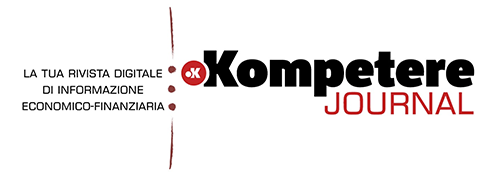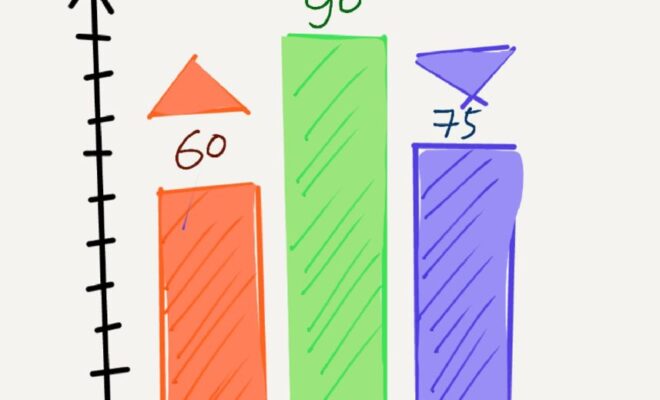Internet e privacy

Internet e le grandi società come Facebook, Alibaba, Apple, Google ed Amazon controllano, indirizzano e permeano la vita di miliardi di persone in tutto il mondo. Persone che sono clienti potenziali e che sono trattate e gestite essenzialmente come tali. Dall’ultimo decennio dello scorso secolo e fino ai giorni nostri, il clima culturale attorno a Internet e al digitale è stato caratterizzato da una fiducia pressoché cieca nel fatto che la tecnologia avrebbe riscritto nel migliore dei modi le direttrici del futuro. Era una connotazione quasi mistica, che Vincent Mosco, docente emerito della Queen’s University, definiva come “sublime digitale”.
Oggi, tale connotazione sembra essere sempre più in crisi. Nessuno avrebbe potuto prevedere che tali società avrebbero conquistato posizioni di incontrastata egemonia tecnologica, economica e finanziaria, restringendo così la libertà della rete ed arrivando a minacciare i nostri diritti di base (privacy, libertà di espressione), come emerso negli ultimi anni, in un susseguirsi di notizie (lo scandalo NSA delle intercettazioni di massa, quello di Cambridge Analytica). Un esempio tangibile di quanto scritto è di pochi giorni fa: Facebook ha bloccato la pagina del movimento libertario dal basso delle “sardine”, ostacolandone fortemente le attività; anche se l’ha sbloccata il giorno dopo, dimostrando così ancora una volta quanto potere si sia ormai concentrato nelle sue mani.
Nel suo “Capitalismo Digitale” Nick Srnicek, docente di economia politica alla City University di Londra, fa il punto sulle evoluzioni dell’economia digitale e sui crescenti e preoccupanti monopoli rappresentati dalle grandi piattaforme della Silicon Valley. Srnicek scrive che “Le grandi piattaforme digitali sono gli attori economici principali di un ecosistema in cui ogni attività umana produce un dato quantificabile, sorvegliabile, conservabile e monetizzabile. La raccolta di informazioni sugli utenti è alla base di monopoli che si espandono seguendo direttrici differenti e senza sostanziale possibilità di concorrenza effettiva”. I dati per Srnicek svolgono “funzioni capitaliste chiave” che sorreggono la crescita di quelle che definiamo “piattaforme”, come Facebook, Google o Amazon, “caratterizzate dal fornire infrastrutture necessarie a mediare tra diversi gruppi di utenti, mostrando tendenze monopoliste spinte da effetti di rete”.
Tutto questo ha conseguenze anche per gli assetti di Internet, il cui futuro sarà caratterizzato da differenti direttrici potenziali: una ricerca sempre crescente di dati estraibili, e quindi di funzioni umane monitorabili alle quali fornire un servizio in cambio di informazioni; la necessità, per queste aziende, di posizionarsi di conseguenza come guardiane delle proprie posizioni dominanti; la convergenza dei mercati, che spinge queste aziende a concorrere per le stesse cose e una crescente presenza di ecosistemi chiusi e centralizzati. Non esattamente la Internet che ci aspettavamo agli albori. Siamo, quindi, dati estraibili con un valore economico altissimo. Chi controlla i dati salienti sui nostri gusti, sulle tendenze, sui desideri e sui bisogni di ciascun cliente potenziale; controlla i clienti stessi ed il mercato. Si stima che, ad oggi, il valore medio annuale pro capite dei dati personali sia pari a 616,82 dollari; moltiplicato per l’enorme numero di utenti, è facile comprendere la portata del patrimonio virtuale delle società del web. Peraltro, il commercio dei dati personali è molto più connesso al mondo “reale” di quanto possiamo immaginare: gli ultimi eventi di cronaca ci hanno insegnato come le aziende tecnologiche siano in grado di influenzare persino la politica.
Tutto ciò prevede e presuppone un controllo diretto, totale ed immediato degli utenti ed una loro progressiva “catalogazione” che rende più semplice per le grandi aziende conoscere ed eterodirigere gusti, bisogni, visione del mondo e dei rapporti interpersonali. Molto importante, in tal senso, è il libro The Filter Bubble (Pariser, 2011). Esso, aiuta a focalizzare l’attenzione sui principali servizi web, dal motore di ricerca Google alle notifiche degli amici di Facebook e fa notare al lettore come questi hanno la tendenza a offrire all’uomo una visione su misura del mondo, personalizzata in base alle proprie aree di navigazione e interessi e sovente dedotta in automatico dal sistema. Se da un lato tutto ciò rappresenta un vantaggio, dall’altro lato è un rischio. Il rischio, di cui parla il testo, è che l’uomo finisca per chiudersi in una bolla. Una bolla che ha l’effetto di isolare l’uomo dalla società, facendogli perdere la percezione della collettività nel suo insieme, orientandolo verso la costruzione di relazioni personali ideali più che reali. La società, informata solo in apparenza, pian piano si sta chiudendo all’interno di una bolla guidata da algoritmi che difficilmente permettono l’accesso al caos, rischio, incertezza, avventura e disordine, elementi che permettono all’uomo di crescere ed evolversi. Si è fragili e poco resilienti agli shock e, da ultimo, più controllabili e classificabili.
Internet and privacy
Internet and large companies like Facebook, Alibaba, Apple, Google and Amazon control, direct and permeate the lives of billions of people around the world. People who are potential customers and who are treated and managed essentially as such. From the last decade of the last century to the present day, the cultural climate around the Internet and digital has been characterized by an all but blind confidence in the fact that technology would have rewritten in the best way the guidelines of the future. It was an almost mystical connotation, which Vincent Mosco, professor emeritus of Queen’s University, defined as “digital sublime“.
Today, this connotation seems to be progressively in crisis. No one could have foreseen that these companies would have won positions of undisputed technological, economic and financial hegemony, thus restricting the freedom of the network and threatening our basic rights (privacy, freedom of expression), as emerged in recent years, in a succession of news (the NSA scandal of mass interception, that of Cambridge Analytica). A tangible example of what is written, we had few days ago: Facebook has blocked the page of the libertarian movement from the bottom of the “sardines”, strongly hindering its activities; even if he unblocked it the next day, thus proving once again how much power has now been concentrated in his hands.
In his “Digital Capitalism” Nick Srnicek, professor of political economy at the City University of London, takes stock of the evolution of the digital economy and the growing and worrying monopolies represented by the great Silicon Valley platforms. Srnicek writes that “The large digital platforms are the main economic actors of an ecosystem in which every human activity produces a quantifiable, verifiable, conservable and monetizable data. The collection of information on users is the basis of monopolies that expand following different directions and without substantial possibility of effective competition“. The data for Srnicek perform “key capitalist functions” that support the growth of what we call “platforms“, such as Facebook, Google or Amazon, “characterized by providing the infrastructure necessary to mediate between different groups of users, showing monopolistic tendencies driven by the effects of network“.
All this, has consequences for the Internet; whose future will be characterized by different potential directions: an ever-increasing search for extractable data, and therefore for human functions that can be monitored to provide a service in exchange for information; the need for these companies to position themselves accordingly as guardians of their dominant positions; market convergence, which drives these companies to compete for the same things and a growing presence of closed and centralized ecosystems. Not exactly the Internet we expected in the early days. We are therefore extractable data with a very high economic value. Who controls the salient data on our tastes, trends, desires and needs of each potential customer; controls the customers themselves and the market. It is estimated that, to date, the average annual per capita value of personal data is equal to 616,82 dollars; multiplied by the huge number of users, it is easy to understand the extent of the virtual heritage of web companies. Moreover, the trade in personal data is much more connected to the “real” world than we can imagine: the latest news events have taught us how technology companies are able to influence even politics.
All this foresees and requires a direct, total and immediate control of the users and a progressive “cataloging” which makes it easier for large companies to know and manage tastes, needs, world view and interpersonal relationships. Very important, in this sense, is the book The Filter Bubble (Pariser, 2011). It helps to focus attention on the main web services, from the Google search engine to the notifications of Facebook friends and points out to the reader how these have the tendency to offer man a tailor-made vision of the world, customized according to their navigation areas and interests and often deducted automatically from the system. While this represents an advantage, on the other hand it is a risk. The risk, of which the text speaks, is that the man ends up closing himself in a bubble. A bubble that has the effect of isolating man from society, making him lose the perception of the community as a whole, directing it towards the construction of ideal personal relationships rather than real ones. The company, only apparently informed, is slowly closing inside a bubble driven by algorithms that hardly allow access to chaos, risk, uncertainty, adventure and disorder, elements that allow man to grow and evolve. We are fragile and not very resilient to shocks and, ultimately, more controllable and classifiable.















